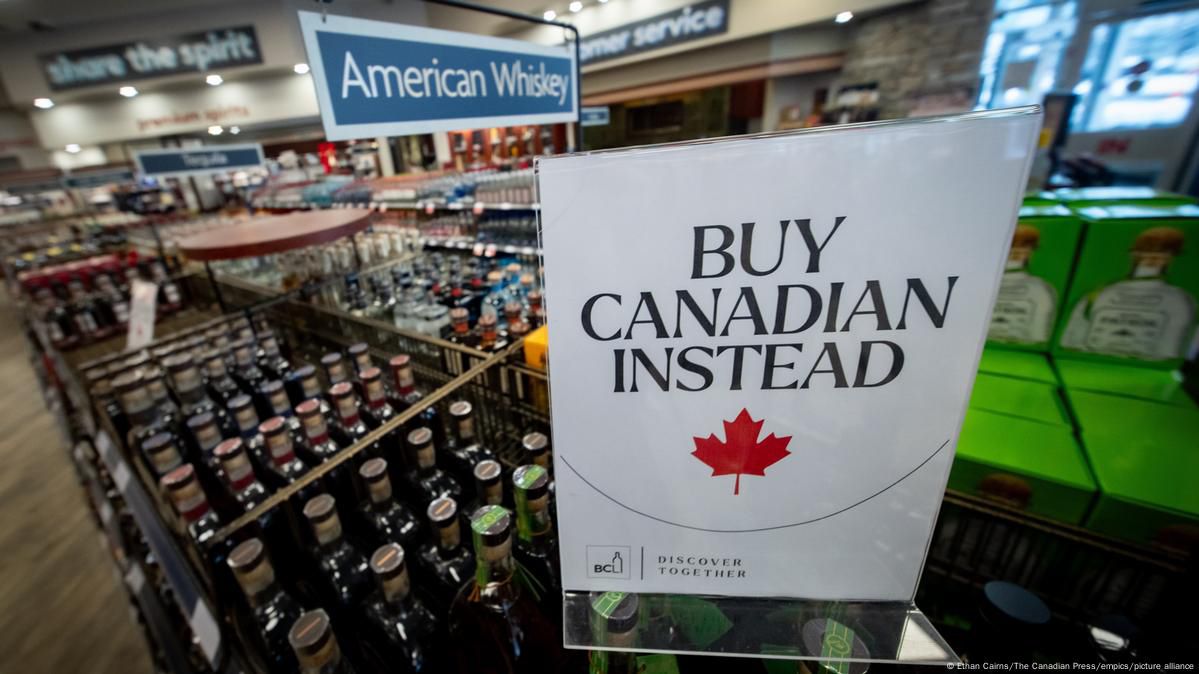Canadian and European efforts to boycott the US: what they mean for Americans

Some key policies include tariffs on allies, stricter border enforcement that has led to the detention of Canadian and European tourists, and changes to foreign aid, economic policy, and trade agreements. In addition to proposing new tariffs on Canada, Trump has repeatedly threatened to impose sanctions on the nation, prompting the country to boycott US goods and holidays.
In Denmark, there has been widespread anger over the Trump administration’s push to purchase Greenland. Specifically, it has been making homegrown products more visible at supermarkets to make it easier for citizens to identify where their products originate.
Tourism and travel in the United States are also being boycotted, as many countries have deemed the US as no longer safe to visit, and encourage their citizens not to travel to the nation. New Zealand’s travel site specifically urges citizens to “exercise increased caution” because of “threats of terrorism,” and other citizens fear getting stuck at the border. Denmark, Finland, Ireland, and Portugal have urged their LGBT citizens to consult their local US embassies for more information regarding how to approach travel in the US, in response to some of the Trump administration’s January executive orders on biological sex.
Ethnic concerns like major geopolitical events, including the conflict in Gaza, have led consumers in Spain and Italy to boycott companies they perceived to support opposing views. Some consumers also hold long-term concerns, questioning what their response would be to Trump closing off American products, such as technology, to them and actively seek alternatives.
Other ethical concerns are driven by everyday problems, for example, price increases, bad customer service, or data privacy. Pre-existing issues like environmental sustainability or animal welfare have also been motivating boycotts.
The impact of these boycotts can already be seen in many of its aspects. The US tourism industry is facing a significant crisis, as travellers are increasingly cancelling trips due to political instability and border-related safety issues. In February, border crossings from Canada were down over 20 percent, and overall travel bookings have dropped by over 70 percent. Visits from Europe decreased 17 percent, and March saw the steepest decline in overseas visitors to the US since the COVID-19 pandemic, falling over 12 percent year-over-year. Countries like Ireland, Germany, and Norway experienced decreases exceeding 20 percent, with Denmark reporting the most severe declines. Tourism Economics updated its inbound US travel forecast from an 8.9 percent growth to a 5.1 percent decline, attributing this change to “strained” travel sentiment, “sweeping tariffs”, and “exchange rate shifts.” Airlines such as Air France-KLM have reduced economy-class fares due to market softness.
This decrease in tourism is dangerous to the US economy, with international visitors contributing over $24 billion to just California’s local economy in 2023. Just this year, the loss in revenue from international visitors is estimated to cost the US economy $12.5 billion. A 10 percent reduction in Canadian visitors alone could result in $2.1 billion lost in spending.
The US economy is already showing signs of “tariff stress,” as 71 percent of Canadians and 44 percent of Europeans plan on turning away from US brands. Tesla alone has seen a nearly 28 percent drop in European sales, and its share price is down 40 percent since December–wiping over $500 billion of the company’s value. Other Elon Musk enterprises, such as X (formerly Twitter) and Starlink, are among some of the most boycotted American companies in Europe. The Canadian province of Ontario additionally “ripped up” its CAD 100 million contract with Starlink.
Beyond direct consumer behaviour, the boycott might jeopardise the United States’ role as a global financial and innovation capital. Foreign investment may be damaged by political instability and international reputation damage, especially in major industries such as technology, education, and finance. If confidence and trust in the US as a stable market continues to decline, firms and foreign investors may redirect capital toward countries with more favourable public sentiment. This deterioration of trust poses long-term risks that extend far beyond tourism or consumer goods.
Overall, tourism is expected to have the largest impact on the country’s Gross Domestic Product (GDP), with tourism anticipated to have the largest impact. A 10 percent pullback in demand could result in a 7 basis point drag on growth, and a 20 percent pullback could have an 18 basis point drag. For other products and consumer goods, a 10 percent pullback could amount to a 2 or 3 percent basis point drag.
This decreased tourism and wave of European boycotts is not sustainable for the United States. Given how deeply Canadian and European consumers dislike recent US values, especially the Trump administration, it is likely that even after the tariffs are resolved, this shift in behaviour could have a long-lasting effect on US companies. US agro-food companies have already experienced losing access to European markets, and some brands may need to prepare for a future where global market access is no longer taken for granted. To stay competitive, some American companies may be forced to rebrand, de-Americanise their public image, or shift production abroad to retain customer trust. If these trends continue, the boycott could accelerate a wider shift in global business strategy, where companies avoid visible ties to US companies to protect international market access.
The declining visitor numbers indicate that the US is losing its “soft power” and the influence it once held through openness and cultural leadership. With this trend, the US tourism boards may need to create counter-narratives to gain back trust, as the long-term impacts of travel boycotts affect culture and the economy. It stands to lose its competitiveness and turn into a closed society where growth and innovation are stifled, especially if other academics and artists choose other countries over the US.
– By Gwyneth Lee
